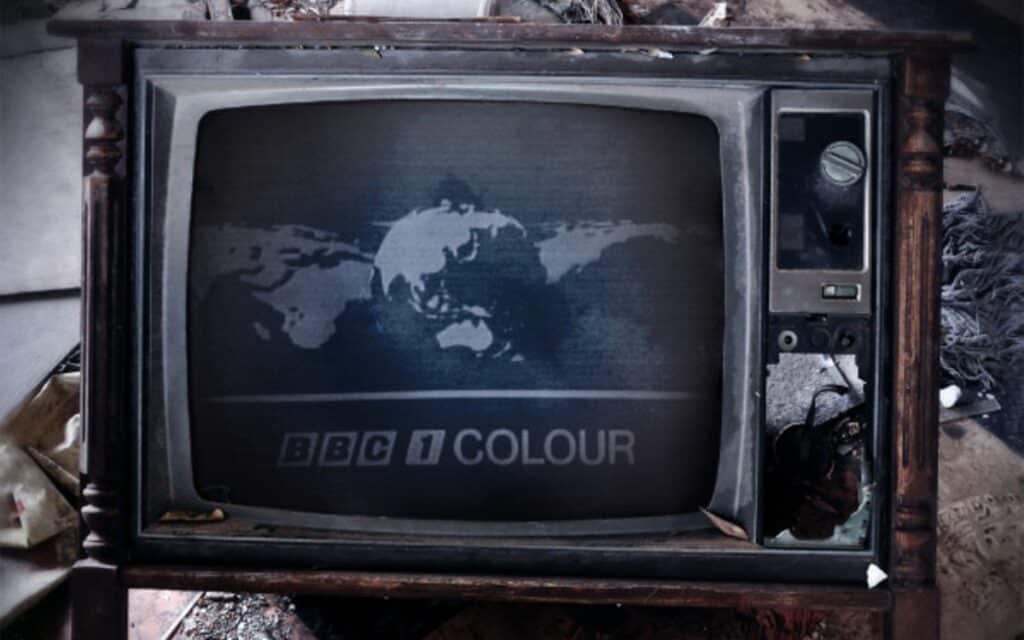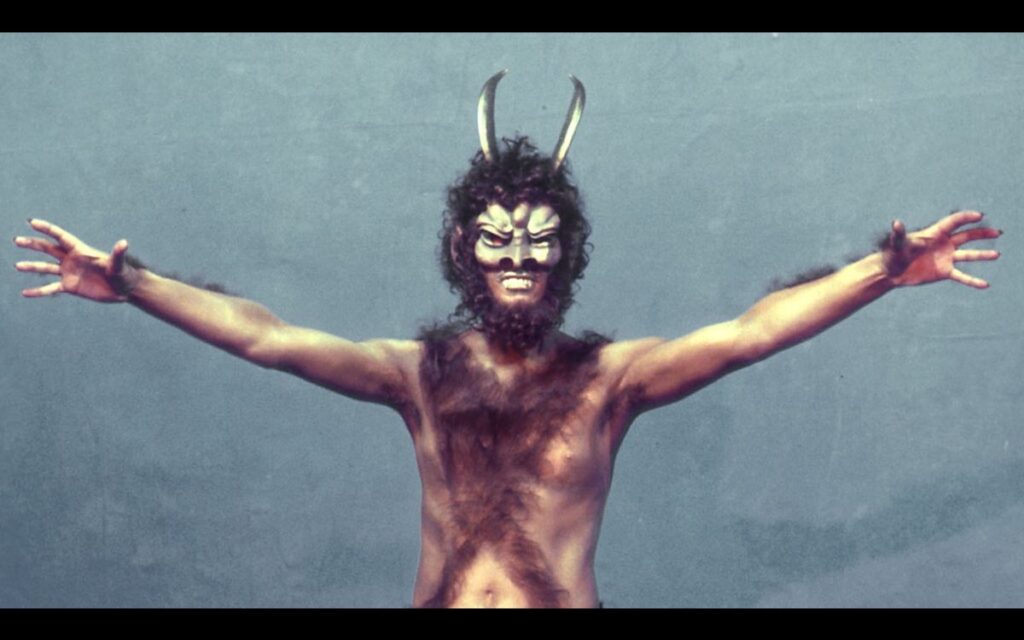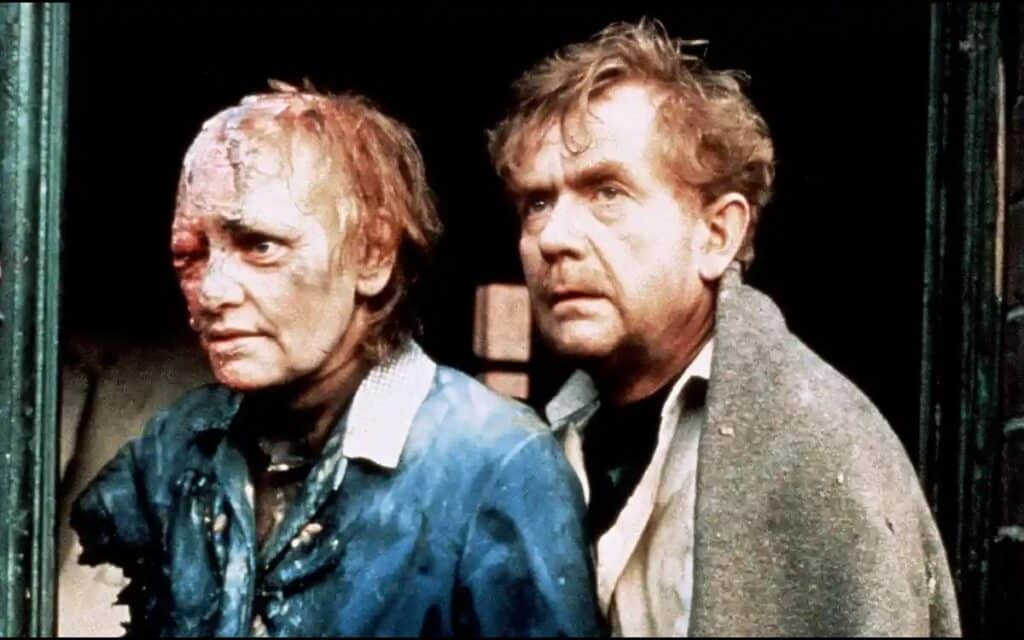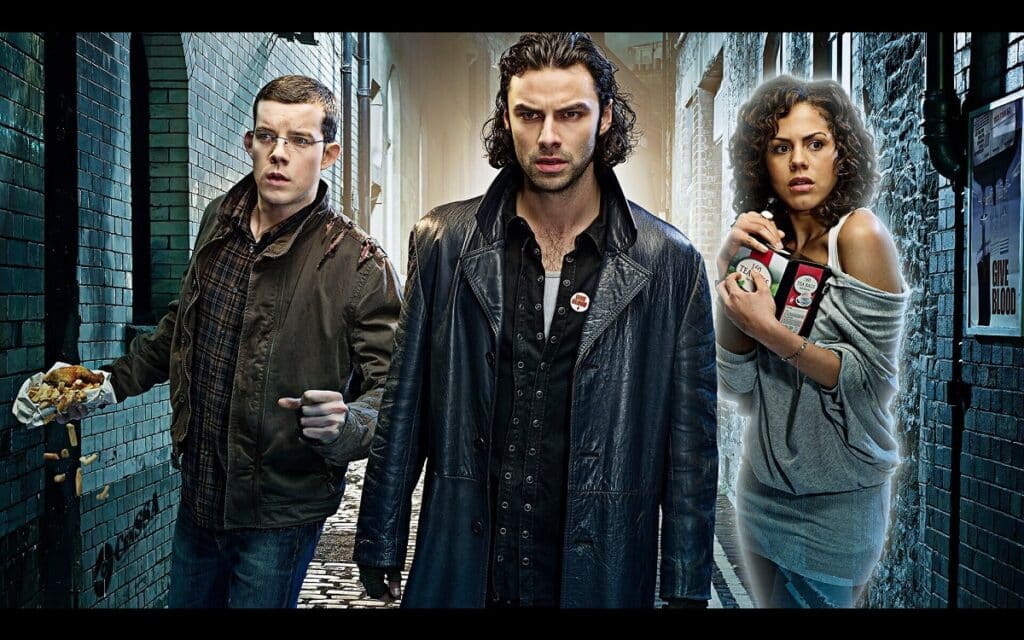To celebrate 100 years of the British Broadcasting Corporation, RICHARD PHILLIPS-JONES takes a personal trip through some of Auntie’s horror highlights.

100 Years of BBC Horror
The BBC has frequently been referred to as a somewhat staid organisation, with it’s half-mocking, half-affectionate nickname of “Auntie”.
And yet, the Beeb (to use another of its nicknames) has frequently produced shows which few, if any other broadcaster would take a punt on. You’ll come across a few of them here, in my own celebration of some horror highlights from the BBC’s history.
Yes, that is Horror. From the BBC. For such a supposedly stuffy institution, they have produced plenty of shows which have chilled, unnerved and occasionally downright terrified a nation and, in marking the BBC’s centenary it seems only right that we draw your attention to some of their finest macabre moments here.
This whistle-stop tour (and I concede, it’s more a 70-year trip than a 100-year ride, but let’s not nit-pick) is in no way intended to be comprehensive. It is a selective list of personal highlights and might be considered a starting point for your own deep dig through Auntie’s archive. If I’ve left out your personal favourite, let us know in the comments section.
1950s
Although a fledgling TV service had been operated by the BBC before World War II, and transmissions resumed after hostilities ceased, BBC Television as we know it was perhaps really kick-started when the live broadcast of Queen Elizabeth II’s coronation in 1953 saw a massive increase in the number of homes with a television set.
A true horror highlight of these early days is Nigel Kneale’s Quatermass trilogy, which appeared between 1953 and 1959 – all would make the leap to cinemas courtesy of Hammer Film Productions (a fourth story was eventually produced by Thames Television for broadcast on ITV in 1979).
1960s
Not exclusively in the horror vein but giving more than its fair share of scares to generations of children (and indeed, adults), Doctor Who appeared for the first time on November the 23rd 1963. In its second story, the show produced its first bona fide classic monster with the Daleks, the Cybermen followed in 1966 and the show’s rebirth for the 21st century gave us the brilliant Weeping Angels.
Casual viewers may well be surprised by just how many horror-tinged gems are lurking in the Doctor’s back-catalogue: Mummy folklore was given an intergalactic twist with Patrick Troughton in The Tomb Of The Cybermen (1967), likewise vampirism in The Stones Of Blood (1978, with Tom Baker), State Of Decay (1980, again with Baker) and The Curse Of Fenric (1989, with Sylvester McCoy). One might even argue there’s a very Hammer-esque influence at work in the Jon Pertwee-era classic, The Daemons (1971), and these examples are just the tip of the iceberg.

Out Of The Unknown arrived in 1965, its Sci-Fi stylings increasingly taking in more horror themes as the show progressed through four series, whilst The War Game (1966) brought an all too stark vision of horror to the screen, depicting the aftermath of a nuclear attack. It was considered too shocking for broadcast in the UK, instead being seen at special theatrical screenings and festivals.
1970s
Horrors of a scientific bent were the raison d’être of Doomwatch, which kicked of the new decade with its February 1970 debut. Its great popularity was not enough to save some episodes from ending up in the missing-presumed-wiped file, but it did at least get a big screen spin-off from Tigon in 1972.
The Ghost Stories For Christmas strand made its 1971 debut with little fanfare, but had no trouble in finding its audience while Dead Of Night (1972) provided seven creepy tales (sadly, only three of the episodes survive today). The Stone Tape was originally intended for that series, but instead was afforded a 90-minute running time and a prime slot on Christmas Day.
The 1975 debut of BBC2’s “Fantastic Double-Bill” kicked off a series of horror-centric movie seasons which would continue for years to come. Many local ITV stations already had their own late-night horror strands, but the BBC’s had the bonus of being nationally networked (albeit with some regional variations for start times).
Childrens’ spooky sitcom Rentaghost made its debut in 1976 and proved a durable success, running for eight years but the same could sadly not be said for the fine anthology series, Supernatural 1977 which failed to find an audience for its solitary run of eight tales, although the bizarre scheduling of the show during the summer can’t have done it any favours. The same year saw a lavish offering for the festive period: Count Dracula (tx 22/12/77) sought to give Bram Stoker’s novel a faithful adaptation, with Louis Jourdan and Frank Finlay as the Count and Van Helsing respectively.
1980s
The Adventure Game arrived at the beginning of the decade: A sci-fi spin on a game show/quiz format, it had the novel and macabre touch of evaporating its celebrity contestants if they took a wrong step crossing the show’s final challenge, the dreaded Vortex. Seeing well-known television personalities being vapourised before your very eyes was a bit disorientating at the time, to say the least.
The BBC returned to the horrors of nuclear fallout with Threads in 1984: This time, the corporation stuck to its guns and broadcast the show that September, as planned to a positive response. A repeat followed in 1985 as part of a season marking 40 years since the Hiroshima and Nagasaki bombings, a week which also saw The War Game finally get its BBC premiere, 20 years after it was made.

1990s
Ghostwatch proved to be one of the more controversial broadcasts in the BBC’s history, a deftly crafted mock-up of a live reality show covering ghostly happenings. Playing themselves, presenters Michael Parkinson, Craig Charles and real-life husband and wife Mike Smith and Sarah Greene played it all with a straight face, so much so that huge numbers of viewers took it entirely seriously.
1994 brought the BBC Scotland production Sea Of Souls, with Bill Paterson as the head of a parapsychology unit at a university in Glasgow. Clairvoyance, hauntings, voodoo and a psychic link between twins were amongst the subjects explored in this fine series.
The decade ended in style as The League Of Gentlemen made their BBC2 debut in 1999 (transferring successfully from a run on Radio 4). Managing the rare feat of making the audience laugh, cringe and get the creeps in equal measure, it spawned something of a Brit-horror mini-industry of its own: A film followed in 2005, whilst the team’s members have variously given us new Ghost Stories For Christmas and Doctor Who tales, along with Sherlock, Psychoville, Ghost Stories (stage production and film) and the seven-series-to-date Inside No. 9.
2000s
Steve Coogan affectionately sent up the Brit-horrors of days gone by in Dr. Terrible’s House Of Horrible in 2001, with Honor Blackman, Sheila Keith, Graham Crowden, Angela Pleasence and Oliver Tobias making guest appearances along the way. In a straighter vein, Mark Gatiss paid homage to the Amicus anthology house-style in Crooked House in 2008.
Being Human (2008-2013) started tentatively as a sitcom featuring a vampire, a ghost and a werewolf house-sharing but a radical re-think led to one of the more original horror shows of the 21st Century. Sadly, huge cast changes knocked the show off balance, leading to a somewhat muted end but at its best, Being Human still stands up as an impressive piece of work whilst online spin-off Becoming Human was something of a trendsetter in expanding the show’s reach beyond the television screen.

2010s and beyond
As mentioned earlier, Inside No. 9 made its debut in 2014, with Reece Shearsmith and Steve Pemberton carrying their love of Brit-horror into a darkly comic variant on the anthology format. Touches of their League Of Gentlemen days remain evident, with a big dose of Tales Of The Unexpected and nods to everything from Brit-Gothic horror to 70’s TV thrillers, decades of British television and film influences, coalesced into something remarkably fresh – perhaps a perfect example of the kind of thing the BBC can do better than any other production organisation, anywhere on earth.
What has been your favourite BBC horror? Tell us in the comments section below!







